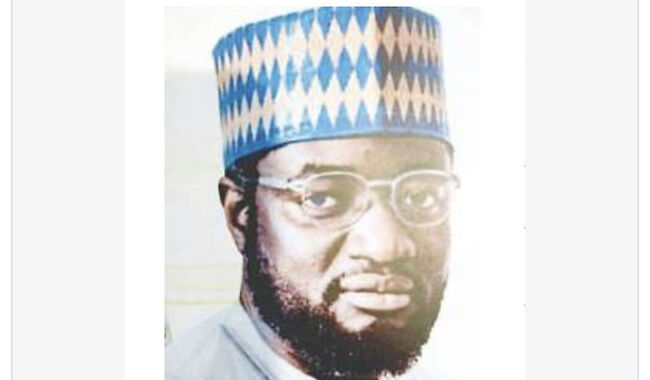DEMOCRACY stands on a tripod: the Executive, the Judiciary and the Legislature. Of the three, the legislative arm is the fulcrum because of its oversight functions, coupled with making laws that could buoy the activities of the two other arms of government. This is why the quality of leadership of the parliament can never be over-emphasised under any political dispensation. Experience, character, discipline, pedigree and other sterling qualities are thus vital in the choice of presiding officers at the Parliament. The task requires a round peg in a round hole to guarantee accountability, stability and progress in governance. As members of the public are aware, a lawmaker’s constitutionally-vested duties are lawmaking for peace, order and good governance, establishing the budget of the government, representation, oversight, passing laws, confirming executive appointments, investigating infractions by the executive, addressing constituents’ grievances, among others.
Amidst public suspense on who wears the crown in June, at least 10 returning members of the House have indicated interest to succeed Honourable Femi Gbajabiamila as Speaker in the next 10th Assembly. The contestants cut across the geopolitical zones except the South-West. All eyes are on Honourable Yusuf Adamu Gagdi, the lawmaker representing Pankshin/Kanam/ Kanke constituency in the 9th National Assembly, who has a network of friends and associates across the board. . His rise to prominence affirms the truism that hard work, diligence and commitment to the welfare of the masses will take a politician to the top. At 41years old, he has shown a dogged commitment to service delivery, dynamism and patriotism.
Though a first-term lawmaker in the current House, he has through his achievements already dwarfed those of his colleagues, who have been privileged to do four terms in the National Assembly. Gagdi set a record as the first first-term lawmaker to have six self-sponsored bills accented to by the president.
Two of the bills are for federal universities, while the seventh bill awaits accent. The list of the bills include: bill for the establishment of the Federal University, Pankshin, Plateau State; bill for the establishment of Admiralty University, Edosa, Delta State; And as the Chairman, House Committee on the Navy, he established the university for the Navy to improve its capacity. He also initiated the bill for the repeal and re- enactment of the Police Act. The Nigerian Police Act had been in existence since 1947 (during the colonial era). To underscore the significance of the bill when passed by the National Assembly, President Buhari accented to it on September 16, 2020. This new Police Act addresses the flaws in the old Act in a number of ways, as the old practice of arresting the wives of crime suspects has been outlawed. A relative of the crime suspect shall not be arrested until the suspect himself is found. Secondly, women now have equal rights as men in the new Police Act, and can even rise to become the inspector-general.
The new Police Act has given power to communities, having recognised Community Policing. Paramount traditional rulers will co-chair the community policing committee with the commissioner of Police. This is cascaded down to senatorial and federal constituency levels.
Gagdi is also the brain behind the bill for the establishment of the National Hydrographic Agency.
The agency shall relate with the ports authority to give nautical information about activities on our waterways. The agency shall be headed by Hydrographer-General of the nation, who shall be a naval General. The major strides of Gagdi are also evident in the bill for the establishment of Federal Polytechnic, Nyak in Shendan, Plateau state; a bill for the establishment of Federal College of Education, Dengi-Kanam, in the state; another bill for the establishment of a Maritime Security Trust Fund for the Navy.
This will enable the Navy to acquire modern platforms to boost its capacity to combat piracy, oil theft, vandalism and other maritime-related crimes. Given that the Nigerian waterways constitute a cash cow, the importance of this bill cannot be over emphasised.
The tremendous impact of Gagdi is remarkable in the area of infrastructure development. He has built 24 palaces and befitting offices for traditional rulers and secretaries to the traditional councils at a cost of over N100 million each. He also built 28 units of classroom blocks in 28 locations in his federal constituency. Besides, he constructed 14 modern primary health care units and built three befitting police posts in the constituency. His enviable records also include the building of six town halls and skill acquisition centres in his constituency.
He constructed 23 roads across Pankshin, Kanke, Kanam, including township roads in the three local government areas.
Gagdi provided 2100 units of solar street lights and drilled 264 boreholes (hand pump and motorised) with the boreholes present in almost all polling units in the constituency. Apart from boreholes he has done eight culverts and bridges, and constructed two secretariats for the community development associations in the constituency.
On education, the lawmaker paid NECO, UTME, WAEC fees for all SS3 students of his constituency amounting to N324million, just as he placed premium on the security of lives and property of his constituents. For example, he procured Hilux vans for three local police divisions and provided 1,618 motorcycles, 80 tricycles and 118 cars so far, to empower young people in his constituency.
It would be recalled that during the Coronavirus pandemic, Gagdi supported the downtrodden with about N36 million, in addition to the distribution of food items worth about N54 million to his constituents. Only last December, he distributed 14 trailers of rice to the three Local Government areas and 77 cows to Christians and Muslims in the communities making up his constituency. He also donated cars to the Christian Association of Nigeria (CAN) and the Jammatul Nasril Islam (JNI) across the constituency. It is no surprise that Gagdi is very popular with both Christian and Muslims. Of course, thanks to his fair-minded nature, as he does not discriminate against any religion. His constituency is 70 percent Muslim, yet because of his generous and detribalised nature, clerics across religious divides preach that their adherents should vote for him, as he is the sort of person Nigeria needs at the helm of affairs. In addition to his impressive six bills that got presidential accents, he brought 18 motions on the floor of the House, largely security-related.
In the course of his oversight functions as chairman of the House Committee on the Navy, Gagdi visited all naval formations in the country three times. This was meant to put them on their toes, ensure discipline in the service and ensure that the rights of junior officers and men were not trampled upon. Interestingly, a lot of what he achieved above was done using his personal resources.
As a former deputy speaker of the Plateau state house of representatives he is tested, trusted and highly favoured by age. In a season in which young people are disillusioned with the ruling class, as a young man Hon. Gagdi knows the problems confronting the youths in the country, he’ll certainly be the bridge between the young and the old in bringing about meaningful growth and development in our country.






